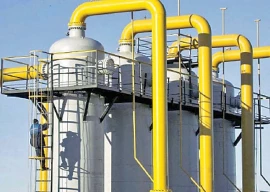
In a milestone move to bolster trade ties between China and Pakistan, two new air cargo routes have been inaugurated recently between the two countries, according to a statement released by Nanning Customs District of China.
The new air routes will operate between Nanning, the capital of China’s southwest autonomous region of Guangxi, and Pakistani cities of Karachi and Lahore.
First freight flight between Nanning and Lahore took off early morning on May 16, opening the first air freight route between Guangxi and Pakistan with the second cargo route from Nanning to Karachi launched the following day.
The Nanning-Karachi route is set to operate thrice a week on Monday, Wednesday, and Friday, while the Nanning-Lahore route will see four weekly flights on Tuesday, Thursday, Saturday and Sunday, overseas business manager of Guangxi Civil Aviation Industry Development Co Ltd said.
It emerged that flights from Karachi/ Lahore to Nanning would primarily transport Pakistani fruits and seafood to China and those from Nanning to Karachi/ Lahore would deliver Chinese clothing accessories and other goods to the Pakistani market.
It is pertinent to mention that Pakistan has enhanced collaboration with Guangxi over the past few years as a growing number of Pakistani enterprises increased their presence in business activities and exhibitions such as the China-Asean Expo in the region.
Pakistan’s relations with China are continuously growing with bilateral cooperation and exchanges in different sectors including agriculture. In one such initiative on Tuesday, the Gansu Academy of Agricultural Sciences (GAAS) and the Sindh Agriculture University of Tandojam (SAU) officially signed a memorandum of understanding (MoU) for China-Pakistan flax research and an innovation hub.
Starting September 2020, Lanzhou, the capital of Gansu province, has launched a project to establish a flax stress-resistance and breeding foreign intellectual achievements demonstration and promotion base. Subsequently, the MoU was signed online by Dr Ma Zhongming, President GAAS, and Prof Dr Fateh Mohammad Maree, Vice Chancellor SAU.
According to the MoU, both parties have agreed to encourage the transfer of a series of modern agricultural technologies from GAAS to SAU, including innovation and cultivation techniques of fruit germplasm resources in cold and arid regions. It will also transfer technology for the cultivation of flax and molecular breeding, forage sorghum cultivation and feeding technique, breeding and release of new cultivars in cold and arid regions including cotton, flax and small miscellaneous grains. Education and training will also be provided to agricultural talents in cold and arid areas.
To be more specific, GAAS and SAU are going to organise joint research programmes, conferences and training workshops, giving opportunity for exchange of faculty and graduates (Masters and PhD students) on scholarship. Besides, exchange of academic materials and periodicals is indispensable as well.
“Our new flax varieties, the Longya series, are all selected according to the climatic conditions, dry with little rainfall, in northwest China. In planting experiments, the yield is generally more than 10% higher than that of local varieties and the resistance to diseases and insect pests is more satisfactory,” Zhao Wei, researcher at the Crop Research Institute of GAAS, elaborated in an interview with the China Economic Net.
“If everything goes well, the series should be able to exert a good effect through drought resistance and increase yield under the climatic conditions of Pakistan.”
Under the MoU, both sides agreed to establish a flax study research and innovation hub, which focuses on high-yield and high-quality composite crops, cooperates in research, demonstration, and promotion of variety selection, optimisation of cultivation technology, plant protection and agricultural mechanisation.
Average production of flaxseed in Pakistan is as low as 692 kg per hectare because of less soil fertility, blind use of fertilisers, lack of high-yield hybrid varieties and old cultivation practices.
Looking at the importance of edible oil and low yield of oil crops in Pakistan, it is of great importance to select and cultivate flax varieties suitable for the country’s climatic and soil conditions as early as possible.
THE ARTICLE ORIGINALLY APPEARED ON THE CHINA ECONOMIC NET
Published in The Express Tribune, May 24th, 2023.
Like Business on Facebook, follow @TribuneBiz on Twitter to stay informed and join in the conversation.




1730959638-0/trump-(19)1730959638-0-165x106.webp)













COMMENTS (1)
Comments are moderated and generally will be posted if they are on-topic and not abusive.
For more information, please see our Comments FAQ